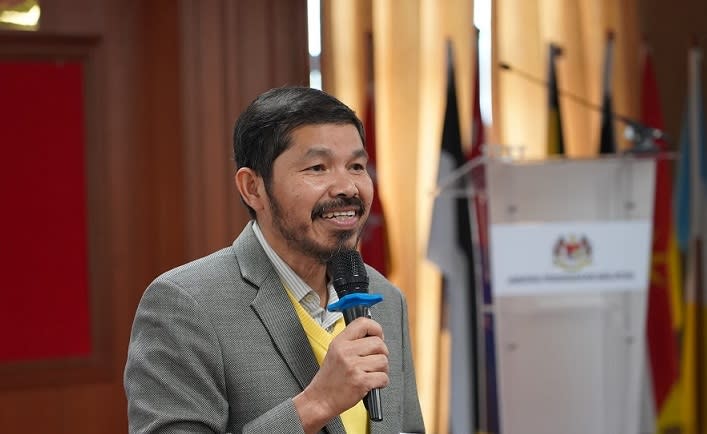Malaysian sports ecosystem must adapt to digitalisation, improve data collection culture, says Chief Statistician

Malaysia continues to aggressively accelerate its digital transformation journey by luring major brands to invest billions of ringgit in the country. Yet, the sporting ecosystem in the Southeast Asian nation isn’t quite prepared for the digital race.
This was acknowledged by the country’s Chief Statistician, Datuk Seri Dr Mohd Uzir Mahidin, who admitted that those in the country’s sports scene seem to lack knowledge in data collection and the need to digitalise their processes.
“We need to improve the data collection and have a more efficient way of keeping these records,” said Mohd Uzir.
“For instance, we need to know why some stadiums or sports arenas are in good condition while others are not, even though they were built in the same year. What are the factors that cause one venue to deteriorate while the other continues to function with minimal upgrades?”
He added that once the stakeholders have accurate data, the government can estimate the benefits of building new venues and hosting multisport events such as the Southeast Asian (SEA) Games.
“If we can reduce the cost of maintaining sports venues, that will lessen the government’s expenditure,” he said.
“Similarly, it could mean having less need to build or upgrade new stadiums each time we host an event like the SEA Games.
“It is not just about hosting an event and judging its success by how many tickets are sold or how many fans turn up at the venue,” he added.
He also pointed out that those in the Malaysian sports scene need to quickly meet the expectations of the government in its digital transformation journey.
Prime Minister Datuk Seri Anwar Ibrahim has highlighted the need for digitalisation and the country to adopt artificial intelligence (AI) technology. Malaysia has scored a series of investments in recent months, with the latest being Google committing to an RM9.4 billion investment to house its first Google data centre and Google Cloud region in Malaysia.
“The government is going big on digitalisation as that is the way forward. However, our sports industry is way behind,” said Mohd Uzir.
“I think the entertainment industry here is a step or two ahead of sports, but we can be quick learners. It all goes back to being effective data collectors. Once we do that well, we can start improving.”
He said more sporting events can sell their tickets online and not rely on physical sales.
“This would reduce human error or favouritism when selling tickets,” Mohd Uzir added.
Uzir and his team worked closely with the Youth and Sports Ministry since 2022 to produce the Sports Satellite Account (SSA). The SSA is a formal and comprehensive statistics component that serves as a guide to determine the valuation of the sports industry and how it contributes to Malaysia’s gross domestic product.
When Mohd Uzir started working with the ministry, there were only 23 Malaysia Standard Industrial Classification (MSIC) codes used to determine the contribution of a product or service to the nation’s economy. There are now 73 MSICs.
The SSA for 2022, with its initial report launched on May 31, revealed that the gross added value for the sports industry grew by 12.1 per cent in 2022, totalling RM19.6 billion or 1.34 per cent of the nation’s GDP in 2022. The value in 2021 was RM17.5 billion.
Mohd Uzir emphasised the need to look at the other spillover effects of hosting such events.
“We need to see how hosting sporting events can help the food and beverage industry, tourism, and hotels, among others,” he said.
“The number of jobs that would be created if Malaysia hosts an event must also be considered.”
A bulk of the core team members from the Youth and Sports Ministry who worked on the SSA over the past two years – Mohd Ridzuan Amin, Muhammad Hasni Abdul Aziz, Muhamad Alif Amdan, Noryusniza Yusop, Nurul Nazirah Abdul Wahim, Shuhaimi Alang Hassan, and Ahmad Saferi Saari – had left the ministry before the launch while Mustaza Ahmad, another core member, is set to leave the ministry later this month. From the core group, only Azizi Azran Abdullah remains in the set-up.
However, Mohd Uzir said the 2023 SSA report would be published in September or October.
“We were supposed to publish the 2022 accounts last year, but there was a delay as we extended the report to include the 73 MSIC,” said Mohd Uzir.
“However, we are finalising the report for 2023. That should be ready in another three or four months.”
The post Malaysian sports ecosystem must adapt to digitalisation, improve data collection culture, says Chief Statistician appeared first on Twentytwo13.


